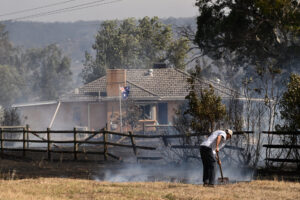The term “energy poverty” refers to people who do not have access to electricity and clean cooking facilities. Globally, 1.3 billion people do not have access to electricity in their houses and 2.6 billion people cook by burning coal, wood and other solid fuels. This has major impacts on people’s health, safety and quality of life.The coal industry is very vocal in promoting energy poverty and pushing coal as a solution to it. The head of major coal company Peabody Energy describes energy poverty as “the world’s number one human and environmental crisis”.However, what Peabody says and what it does about energy poverty are very different. Although the company contributes to many charitable causes, it does not donate money, staff time, expertise or discounted fuel to any project that directly alleviates energy poverty.
Related documents
Between the Lines Newsletter
The biggest stories and the best analysis from the team at the Australia Institute, delivered to your inbox every fortnight.
You might also like
Why a fossil fuel-free COP could put Australia’s bid over the edge
When the medical world hosts a conference on quitting smoking, they don’t invite Phillip Morris, or British American Tobacco along to help “be part of the solution”.
Burning homes and rising premiums: why fossil fuel companies must pay the bill
Another summer, another round of devastation: homes lost, communities evacuated, lives upended.
Fossil-fuelled universities – Australian unis selling their integrity to coal and gas companies
Of Australia’s 37 public universities, 26 take money from fossil fuel companies, according to new research released today by The Australia Institute.



